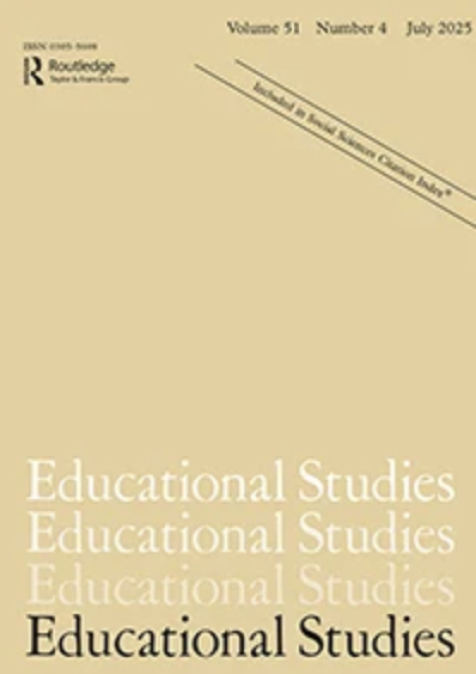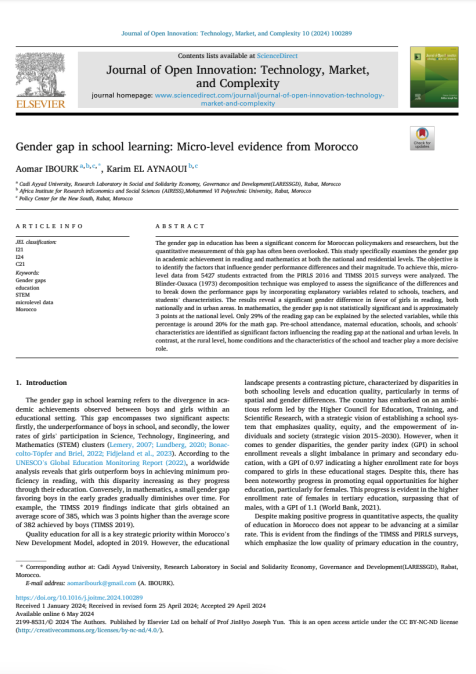Publications /
Opinion
At 31, this Moroccan “impact tech” entrepreneur already has an impressive track record. She is not only the founder of Douar Tech, an inclusive tech hub that helps empowering young people and women with digital skills in rural and peri-urban areas in Morocco, but also spent 2020 in Kigali, working as a Project Manager on startups and ICT ecosystems for Smart Africa.
This pan-African initiative of Paul Kagame, President of Rwanda, has 30 member countries working on a common digital market. Hanae Bezad helped define the strategy to create favorable conditions for startups on the continent, talking to governments, development agencies and the private sector. She left after a final Blueprint came out with the state of play in each of the 30 member countries, an ecosystem mapping for all countries, a final draft for Rwanda and Benin Startup Acts, a strategy outline for updating and enacting the Ivory Coast Startup Act, and last but not least, the launch of the pan-African Startup Act initiative, endorsed by Heads of States in December 2020.
The digital revolution in Africa
Hanae Bezad learned a lot in Rwanda, a “fascinating country with a strong will, a clear direction and strong potential”, she says. She found similarities with her country in “the mobilization of the diaspora and the hard work on infrastructures”, but also differences in the fact that growth is “still driven by the State and foreign aid, while a more vibrant private sector would help accelerate the development”.
When asked if there is a real digital revolution in Africa, considering the limited access to Internet (22% in Subsaharan Africa and 55% in North Africa according to the World Bank), she replies: “We can still talk of revolution in many aspects. People have access to resources, knowledge and networks that impact their lives, and perceptions in a more obvious way than TV. With some 650 hubs on the continent, I do see a digital revolution, not only in terms of skills transfers but also with many attempts to reshape the narrative. Fintech is working towards mobile banking and digital inclusion… It’s fair to say there is a revolution, as the continent is boiling with ideas.”
Getting more skills
Born and raised in Rabat, Hanae Bezad speaks almost as fast as she thinks. She comes from a family where education means everything. Her father was a medical doctor, her mother a teacher and one of her grandmothers a school principal. “Both my parents have launched social projects to play their part, as citizens. The context of my childhood was a transforming Morocco, still carrying a post-independence dream of autonomy and excellency, yet already altered by the slowness of progress and the privatization of the health and education sectors. I was raised being told that my life would not be simple as a woman, and that I would have to fight. In short, I grew up with contradictory paradigms: belief in the values of socio-liberal progress inspired by the West, and appreciation of the complexity of my multi-layered conservative society”.
Her excellent results at the Lycée Descartes in Rabat and her Scientific “Baccalauréat” (A Levels) led to the French government granting her a Scholarship for Excellence, covering five years of studies in France. Besides a Dual Master’s degree in Corporate and Public Management (Sciences Po Paris & HEC Paris) obtained in 2014, she has three Bachelor’s degrees, one in Law (Paris I – Panthéon Sorbonne), the other on Social Science (Sciences Po Paris, 2010) and the third on Mathematics and Physics (Université Pierre et Marie Curie).
Her idea was to “explore as many fields as possible, in the pluridisciplinary spirit of the American way of educating”. Something she experienced herself during a year of exchange at the University of Pennsylvania in 2009-10. With no precise idea of her future, she just knew she didn’t want to “embrace the fragilized jobs” of her parents, and that she wanted “as many skills as possible to work in the development field”.
Back to Morocco
She could easily have had an interesting career in France, where she worked for two years and a half for Eleven, a consultancy group specialized in digital transformation for big companies. “This universe, remote from my studies, added value for me, she recalls. Eleven was my day job as I was also writing a tribune for the think tank Fondapol (Fondation pour l’innovation politique), was interested by the MENA region, and also became a member of the board of directors of Led by HER, a social incubator for women entrepreneurs who are victims of violence”.
All of this nurtured her reflection on development, technology, inclusion and what she could do in Morocco, where she felt like going back in 2016 – the right time for her. “I was always questioned about the terrorist attacks of 2015 in Paris, something tiring, as I was also appalled by this violence that roots itself in systems of exclusion. I decided to go get more skills, learn how to code and launch Douar Tech.”
Empowering women
This tech hub is targeting youth and especially women, in order to train them to skills that will help them professionally. Among its partners, Douar Tech counts Unicef and the American Embassy . In 2019 and 2020, Douar Tech reached out to 70 beneficiaries, with 43 mentors and 10 staff members. In the first quarter of 2021, it has trained 275 women already, out of which 200 Afropreneurs in partnership with Afrilabs.
Hanae Bezad applied successfully to the Atlantic Dialogues Emerging Leaders (ADEL) program in 2019, motivated by the quality of the program and community. She is still an active member of the ADEL community, writing pieces on building an Atlantic community for the Policy Center for the New South and inviting her peers to hold sessions for the Douar Tech programs.
The extra-ordinary Hanae Bezad, spotted by Voice of America, The Arab Weekly and Femmes du Maroc, is still busy getting more and more skills. She is currently getting trained to become an aero yoga teacher – one of her hobbies. As we spoke, she was reading “You Belong: A Call for Connection” (2020) by the Ethiopian author Sebene Selassie, around spirituality and anti-racism and “My Sweet Orange Tree” (1968), the best-seller by the Brazilian novelist José Mauro de Vasconselos. She also belongs to the House of Beautiful Business, and launched the Kigali Chapter of this global platform with an event focused on “Gukira”, healing and abundance. Her writing project, “Un abécédaire d’une vie moderne”, has been published online with the help of a young professional trained by Douar Tech.
Hanae Bezad won’t say what is her next move, but here’s a clue: “The idea of coming back home has nothing final. Mobility is important for me, in order to thrive in more fluid identities.” Sabine Cessou
You can consult Hanae’s portrait along with others on the ADEL Alumni Portrait page.









